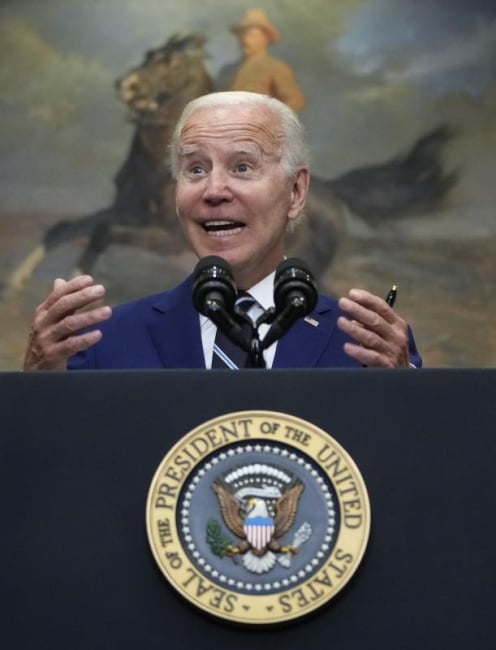You have /5 articles left.
Sign up for a free account or log in.

President Biden
Drew Angerer/Staff/Getty Images
The Biden administration is putting off a final proposal on gainful employment and several other regulatory matters until next spring.
The Office of Information and Regulatory Affairs released an update on several negotiated rule-making agenda items that will not be completed this year and are now scheduled for release in April 2023 at the earliest. This includes a new gainful-employment rule, measures of financial responsibility for colleges, standards of administrative capability, certification procedures and ability to benefit.
Additional regulations on for-profit education have been at the center of the negotiated rule-making process that has been ongoing since January. The gainful-employment rule, which many consumer advocates have been calling on the Biden administration to replace, would create a metric that compares the debt a student takes on compared to the income they earn after graduating from a program to determine a program’s eligibility for federal funding.
The for-profit industry has been concerned that the gainful-employment proposal was rushed and that the accountability metrics would only apply to programs at for-profits and nondegree programs at public and nonprofit universities, generally at community colleges.
“Rushing towards an arbitrary deadline is not helpful for any public policy. We hope with this additional time the department will rethink their fundamental approach to this accountability framework,” said Nicholas Kent, the chief policy officer at Career Education Colleges and Universities, which represents for-profit institutions.
David Baime, senior vice president for government relations for the American Association of Community Colleges, would not state the organization's position on gainful employment, but he said that “given the complexities of the issue and the requirements of the master calendar, we are not particularly surprised the department is effectively pushing off the regulation for another year.”
In reaction to the delay, consumer protection advocates are concerned about the lack of enforcement mechanisms on for-profit institutions in the interim.
“The Biden administration undertook an ambitious regulatory agenda, and I think gainful [employment] is the centerpiece of this,” said Amy Laitinen, senior director for higher education policy at the left-leaning think tank New America. “I think it's really disappointing that the Biden administration did not prioritize getting this one done in a timely manner.”
If all goes as planned, the final rule on gainful employment would not be put into place until July 2024, a year after the originally proposed timeline, and failing colleges would not be punished until 2027. Advocates say that this delay on a release of heightened enforcement mechanisms is worrisome for students who are most targeted by predatory colleges.
“The students that are the most targeted by the most predatory institutions, the lowest-quality, highest-debt programs, are the ones that are always the most marginalized by higher education,” said Kyle Southern, associate vice president at the Institute for College Access and Success. “They are Black and Latino, they are low-income students, they are veterans who are all trying to navigate this really complex web of programs. The real people who are going to be the victims of continuing to have a weak set of regulations in place are the ones that are targeted all along.”




